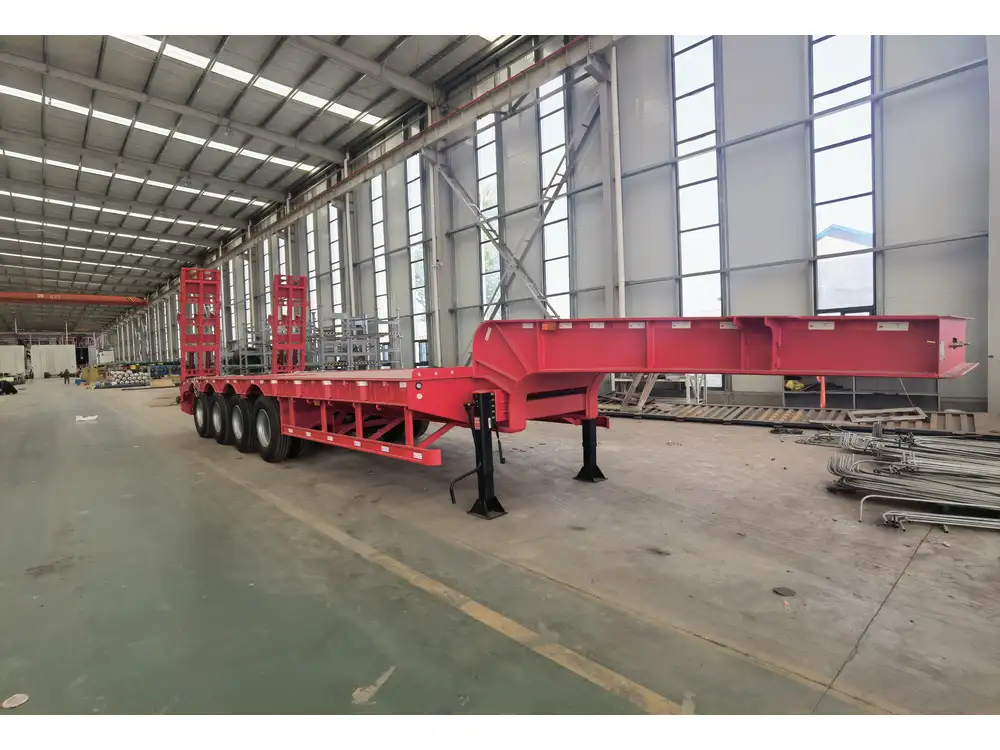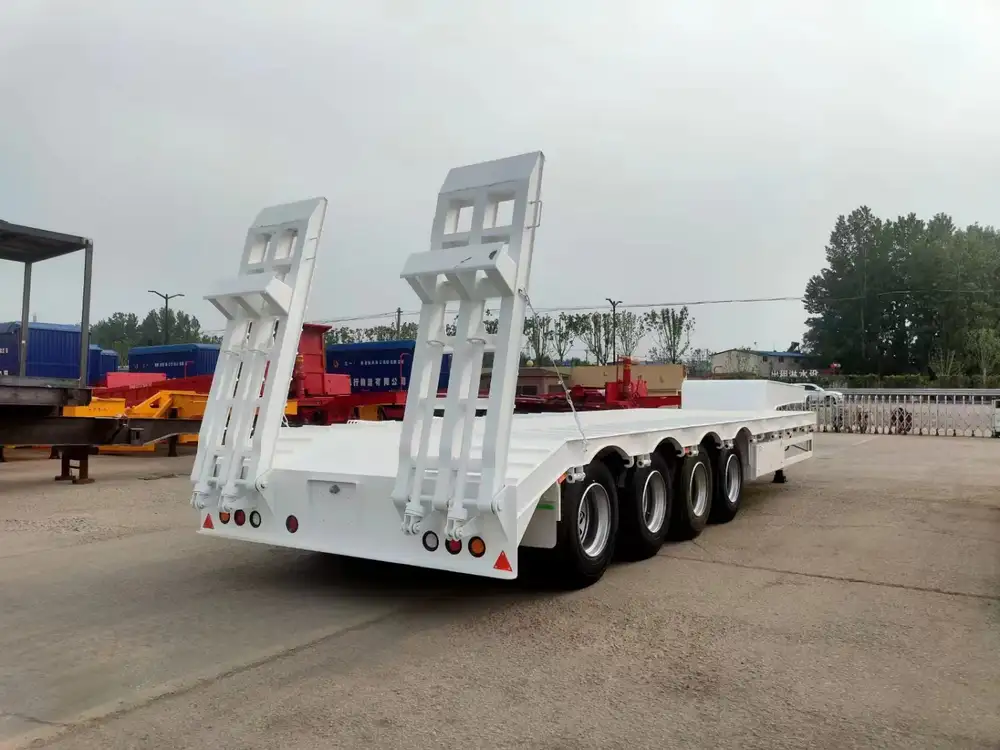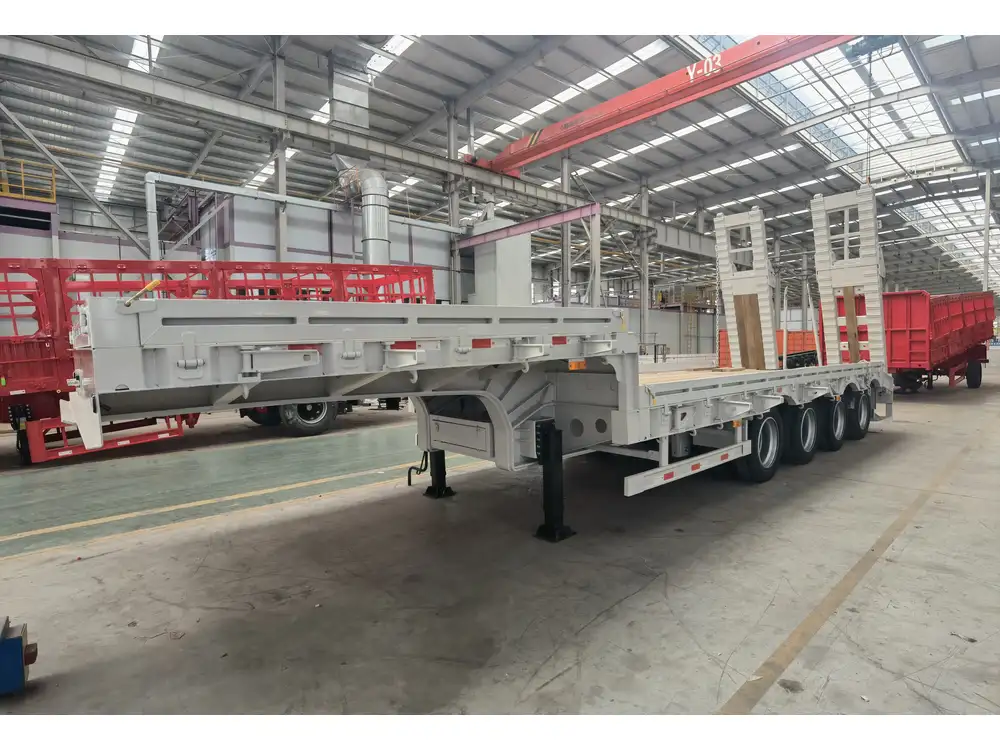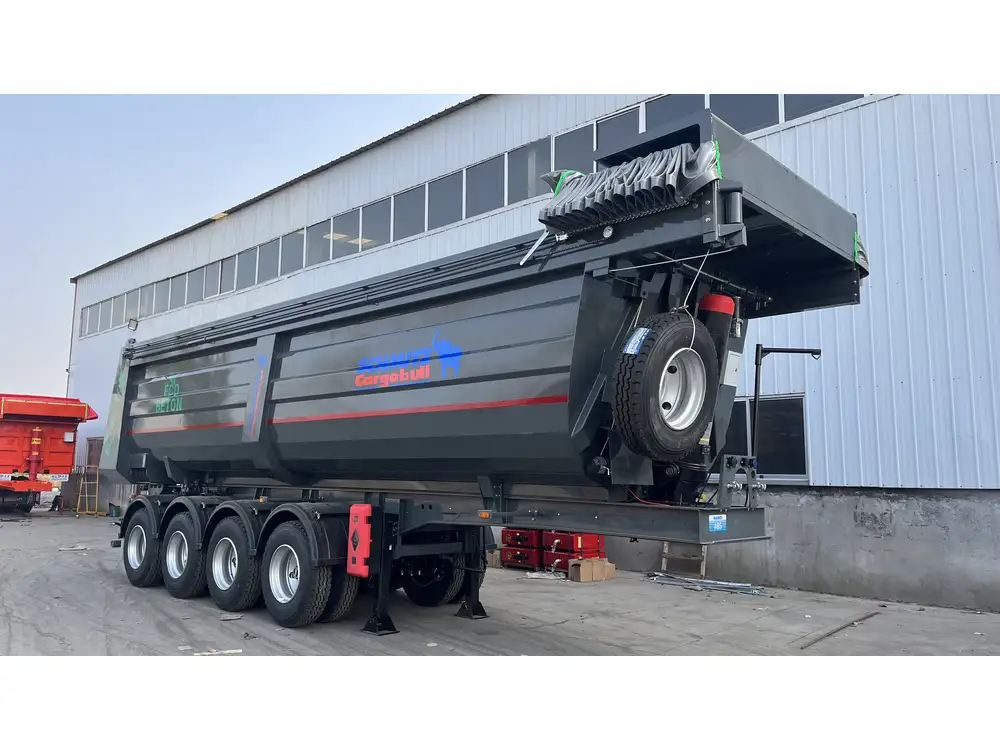In the fast-paced world of logistics and transportation, the ability to efficiently manage freight is paramount. Whether you are a fleet manager, a small business owner, or an independent contractor, the question of “Can I rent a semi truck and trailer?” often emerges. This guide explores the intricacies of renting semi trucks and trailers, offering valuable insights that can help you make informed decisions that align with your operational needs.
Understanding the Semi Truck Rental Market
Benefits of Renting Semi Trucks and Trailers
Renting semi trucks and trailers presents numerous advantages over purchasing, especially for businesses that require flexibility or have varying transportation demands. Here are some key benefits:
| Benefit | Description |
|---|---|
| Cost-Effective | Avoids large upfront purchases, allowing for better cash flow management. |
| Flexibility | Ability to adjust fleet size based on changing business needs. |
| Access to Latest Models | Rent newer models equipped with the latest technology and compliance features. |
| Maintenance-Free | Rental agreements typically cover maintenance, reducing downtime and operational hassles. |

Types of Semi Trucks and Trailers Available for Rent
When considering rental options, it’s crucial to understand the wide range of vehicles available. The choice will depend on specific needs, cargo types, and budget constraints.
- Dry Van Trailers: Ideal for transporting non-perishable goods. Their enclosed design protects cargo from the elements.
- Reefer Trailers: Temperature-controlled trailers for perishable items like food and pharmaceuticals.
- Flatbed Trailers: Suitable for heavy loads and oversized freight, offering easy loading and unloading from the sides.
- Tanker Trailers: Designed for transporting liquids, these require specific certifications and safety regulations.
- Box Truck Rentals: Smaller and easier to maneuver, they’re perfect for local deliveries and short hauls.
What to Consider When Renting
Identifying Your Requirements
Before entering the rental marketplace, clearly define your operational requirements. Consider these factors:
| Factor | Importance |
|---|---|
| Cargo Type | Different trailers are designed for different kinds of freight. |
| Load Capacity | Ensure the truck can handle the weight and volume of your goods. |
| Distance | Long-haul versus local deliveries may influence your vehicle choice. |
| Duration | Daily, weekly, or monthly rental agreements may have different pricing structures. |

Budgeting for Rental Costs
Establishing a rental budget is crucial. Rental costs can vary significantly based on truck type, rental duration, and additional services. Consider these components of rental expenses:
- Base Rental Fee: Cost of renting the truck or trailer per day/week/month.
- Mileage Charges: Additional costs per mile if a mileage limit is exceeded.
- Insurance: Ensure adequate insurance coverage to protect against accidents or damages.
- Fuel Costs: Depending on distance, fuel expenses can be a significant part of your budget.
Rental Process
Finding a Rental Provider
The first step in renting a semi truck is locating a reputable provider. Look for local rental companies or national chains that specialize in commercial truck rentals. Consider the following:
- Online Reviews: Investigate customer feedback to gauge reliability and service quality.
- Fleet Variety: Choose a provider with diverse options to fulfill specific transport needs.
- Availability: Ensure the provider has the necessary trucks available for your desired rental period.

The Rental Agreement
Carefully review the rental agreement before signing. Key components to understand include:
- Rental Duration: Clearly specify the agreed rental period.
- Use Restrictions: Understand if there are any limitations regarding where or how the truck can be used.
- Maintenance Responsibilities: Know what maintenance is covered by the rental service and what is expected from you.
- Return Conditions: Be aware of the condition requirements upon return to avoid additional fees.
Frequently Asked Questions (FAQs)
1. Can I rent a semi truck and trailer for a long-distance haul?
Yes, many rental companies offer options for long-distance hauls. Be sure to discuss your needs with the rental provider to ensure the right vehicle is available.

2. What documents do I need to rent a semi truck?
Typically, you will need a valid commercial driver’s license (CDL), proof of insurance, and a credit card for the security deposit.
3. Are there mileage limits on rentals?
Many rental agreements will include mileage limits. Exceeding these limits usually incurs additional charges, so it’s essential to consider your planned route carefully.
4. Is maintenance included in the rental fee?
Most reputable rental companies include basic maintenance in the rental fee; however, always confirm what is covered and your responsibilities in case of breakdowns.

5. What happens if I damage the rental vehicle?
Responsibility for damages can vary by rental agreement. Ensure you understand the terms regarding repairs and insurance coverage prior to taking possession of the truck.
Advantages of Renting Vs. Buying Semi Trucks
| Aspect | Renting | Buying |
|---|---|---|
| Cost | Lower initial outlay; pay as you go | High capital investment upfront |
| Maintenance | Typically covered under rental agreement | Full responsibility for maintenance and repairs |
| Flexibility | Easily adapt to changing needs | Long-term commitment; difficult to adapt quickly |
| Depreciation | No depreciation concerns | Value loss over time; affects resale value |
| Variety | Access to a wide range of vehicles | Limited to owned vehicles |
Choosing the Right Provider

Evaluating Rental Companies
Renting a semi truck is significant in ensuring seamless logistics and operational efficiency. When selecting a rental company, consider:
- Customer Service: Assess their responsiveness and willingness to assist both during the rental process and in case of emergencies.
- Fleet Condition: Inspect or inquire about the condition and age of vehicles in their fleet.
- Availability of Support Services: Look for companies that offer 24/7 roadside assistance and technical support.
Comparing Quotes
Once you’ve identified potential rental companies, request quotes from multiple providers. This tactic not only ensures you get competitive pricing but also helps identify any hidden fees or additional costs.
Conclusion
Renting a semi truck and trailer is a strategic decision that can offer numerous advantages for businesses in the transportation sector. By understanding the rental market, carefully assessing your needs, and choosing the right rental partner, you can optimize your logistics operations and enhance service delivery.
To sum up, when you ask, “Can I rent a semi truck and trailer?” the answer is indeed a resounding yes. It’s a viable and often advantageous option that can provide flexibility, enhance efficiency, and maximize profitability. Regardless of the size of your enterprise, understanding the mechanics of the rental process empowers you to make informed choices that boost your operational performance and meet your logistical demands.



